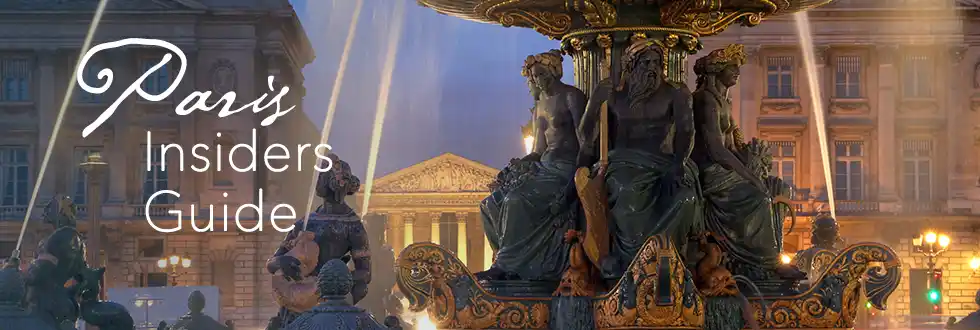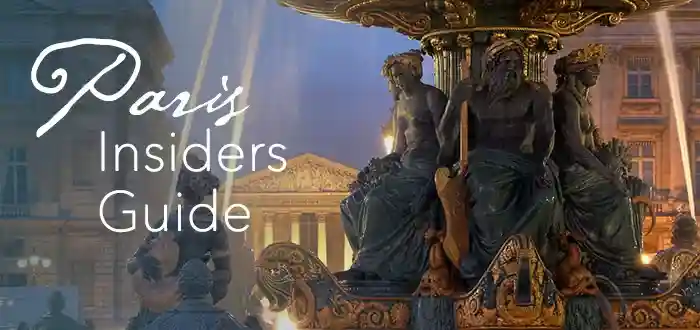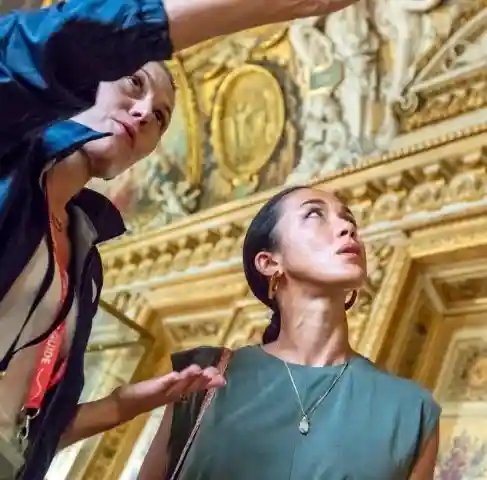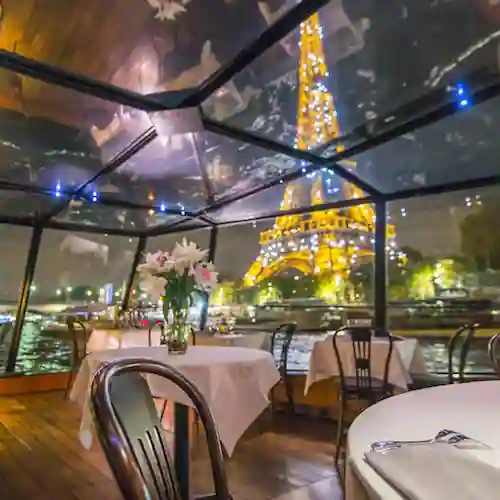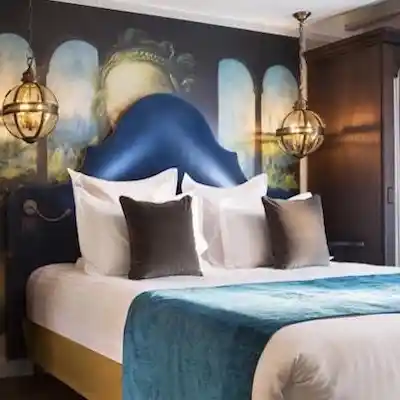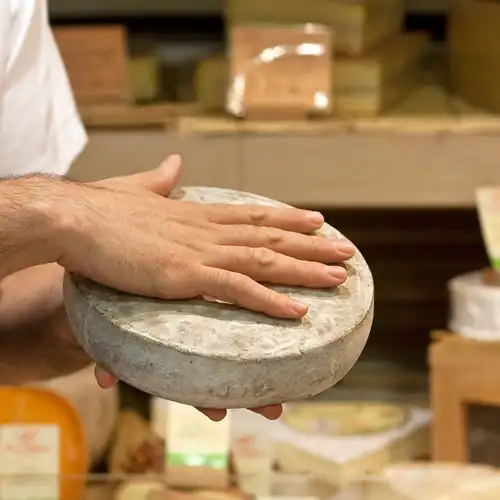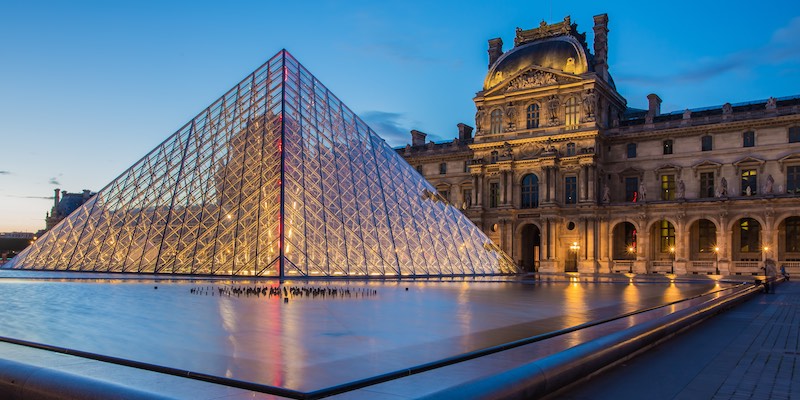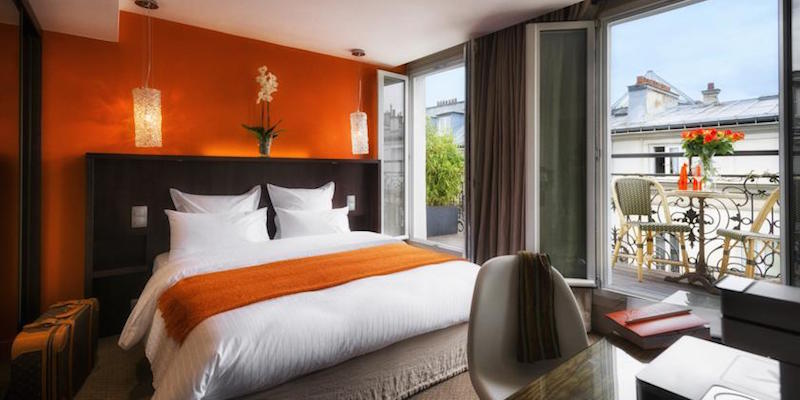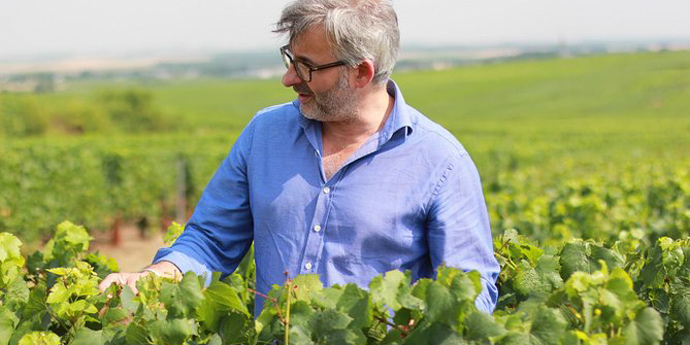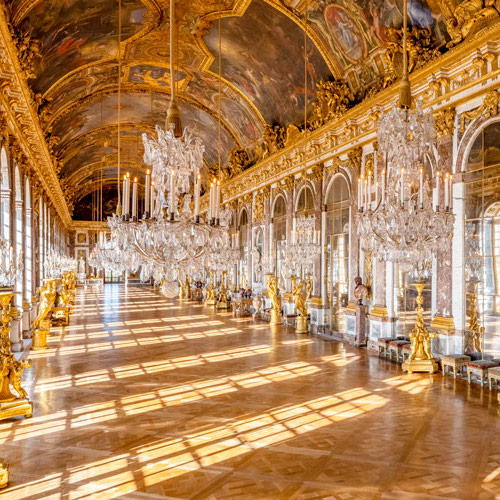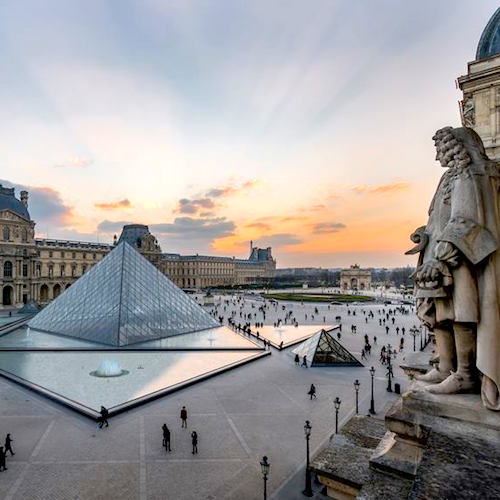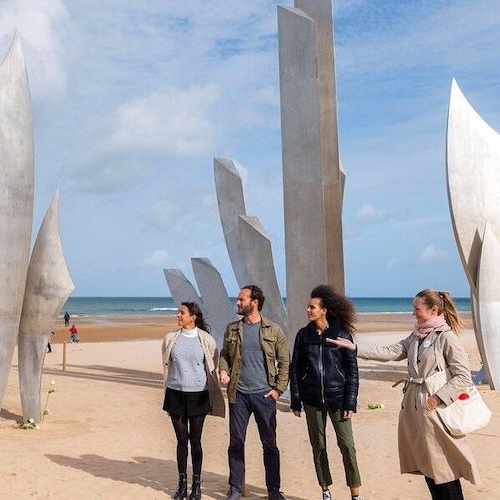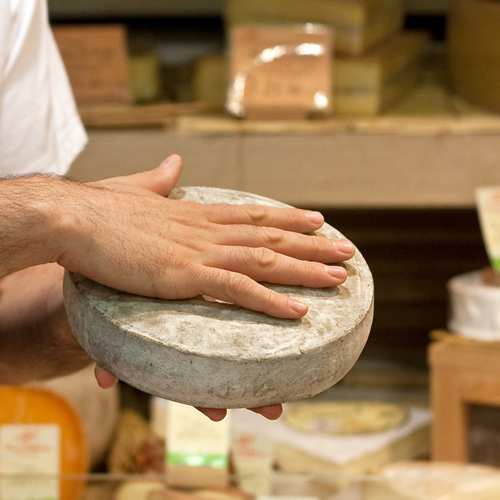Zadkine Museum Paris – An Artistic Sanctuary In The Heart Of The City
Nestled in a quiet corner of the city near the Jardin du Luxembourg in the 6th Arrondissement, the Zadkine Museum Paris is a tranquil escape from the hustle and bustle of Saint Germain des Prés.
Dedicated to the life and work of Russian-born sculptor Ossip Zadkine, the small yet captivating Musée Zadkine Paris immerses you in a world of modernist sculpture and creativity. Once Zadkine's home and workshop, it now showcases his legacy in an intimate, garden setting. This artistic shrine is one of the hidden gems of Paris.
![]()
Our Top-Rated Museum Tours in Paris
1. Musée Picasso Private Tour… Experience the life and work of the master
2. 3-Hour Louvre Semi-Private Tour… Feel like a VIP on a small group tour
3. Musée d'Orsay Impressionist Tour… The top-rated museum tour in Paris
4. The Paris Museum Pass… Free entry to over 60 museums and monuments
What is the Zadkine Museum?
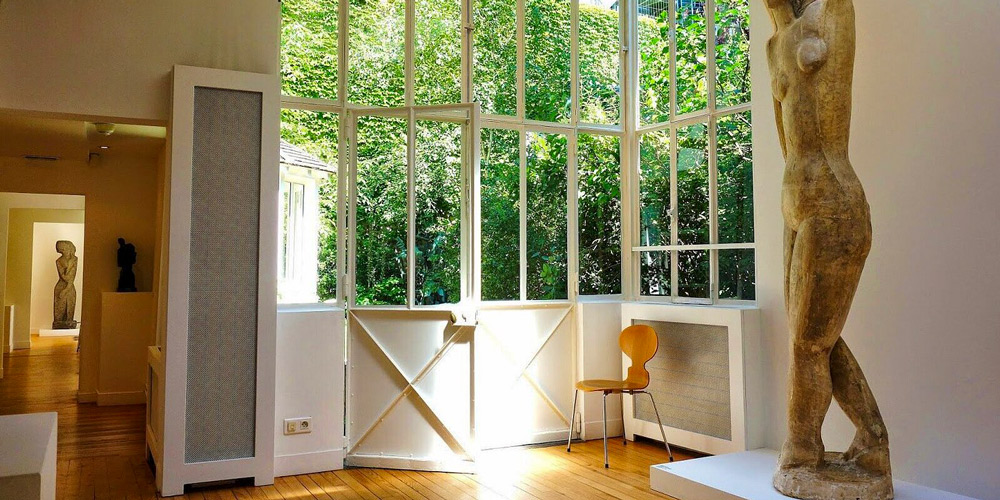
Zadkine Museum Paris is all about Ossip Zadkine who lived from 1890 to 1967 and was a leading figure in 20th-century modern sculpture. Opened in 1982, Musée Zadkine museum occupies the building where Zadkine lived and worked for nearly four decades. Here, you can immerse yourself in his exploration of form, material, and the human condition.
The museum's contemplative setting is as inspirational as the works themselves — the peaceful garden, filled with Zadkine's sculptures, is a serene backdrop to his art, while the studio interiors gives you insight into his creative process. Unlike larger Paris museums, this hidden museum focus on one artist, celebrating Zadkine's artistic vision and craftsmanship.
What You Will Find at the Zadkine Museum
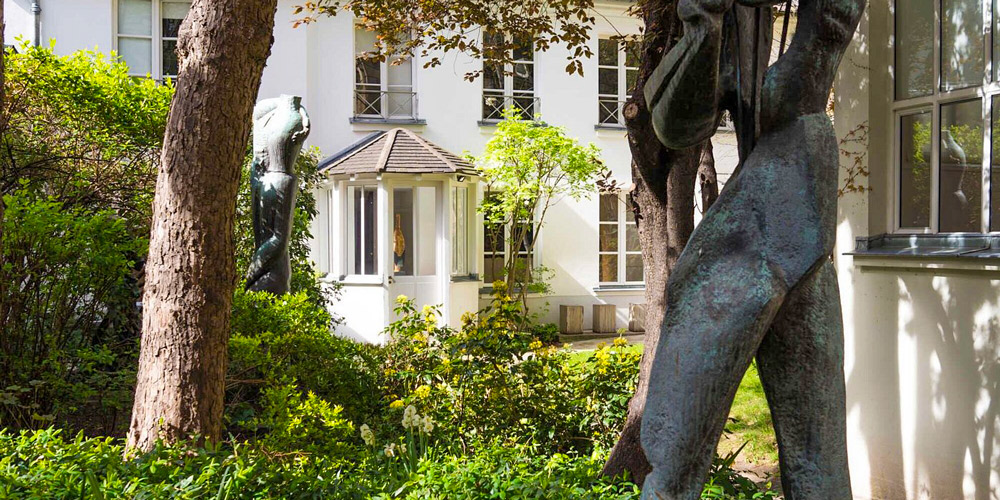
The collection of Zadkine Museum Paris showcases a broad selection of the sculpture's works, from his early experiments to his later masterpieces. Every corner of the Zadkine Museum Paris gives you chance to connect with the artist's work, from monumental sculptures to delicate sketches. Here are some of the highlights:
Sculptures in Various Media
The museum features pieces carved in stone, wood, and bronze, reflecting Zadkine's mastery of diverse materials. His abstract yet deeply human figures are timeless.
The Artist's Studio
The preserved studio space gives you a glimpse into the creative process of Zadkine. Tools, sketches, and unfinished works add context to his artistic process.
The Garden
The lush, sculpture-filled garden is a highlight of a visit to the Zadkine Museum Paris. It invites contemplation and perfectly complements the museum's intimate atmosphere.
Drawings and Paintings
Beyond sculpture, Zadkine also created sketches and paintings that show his broader artistic vision and how he translated ideas into three-dimensional form.
Temporary Exhibitions
The Zadkine Museum Paris also hosts temporary exhibitions that explore themes in modern art or highlights lesser-known aspects of Zadkine's career.
![]()
|
Skip the long lines and dive into the Louvre’s greatest hits — the Mona Lisa, Venus de Milo, and more — on a guided tour that shows you the treasures without the museum overload. |
|
Skip the long lines and dive into the Louvre’s greatest hits — the Mona Lisa, Venus de Milo, and more — on a guided tour that shows you the treasures without the museum overload. |
The History of Musée Zadkine Paris
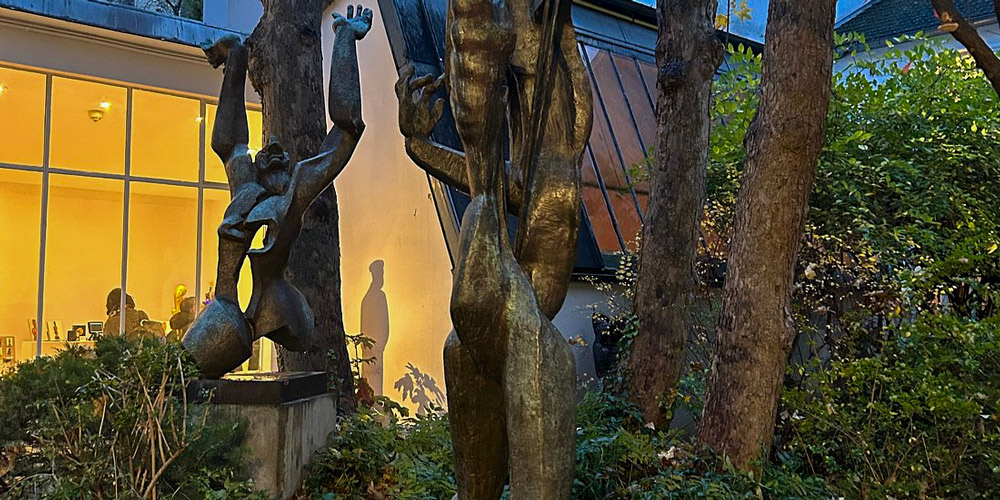
The story of the Zadkine Museum Paris begins with Ossip Zadkine himself, who moved to Paris in 1910 from his native Russia. He first settled in the Montparnasse district, where Zadkine was a part of the artistic avant-garde group including contemporaries like Modigliani, Chagall, and Picasso.
In 1928, Zadkine, along with his artist-wife Valentine Prax (also a Russian emigre), took residence at the house and studio on Rue d'Assas. Here, they lived and worked alongside each other until his death in 1967. After Prax's death in 1981, the property was bequeathed to the city of Paris, and it was transformed into the Zadkine Museum in 1982.
The spirit of Zadkine's life and work is palpable in the museum. The house, studio, and garden have been meticulously maintained, creating an nurturing environment where you can explore the sculptor's artistic journey and his relationship with Paris, the city he called home for forty years.
![]()
|
Browse our hand-picked Paris hotel deals with real-time discounts of up to 20%. Stay in the Marais, Saint Germain, the Latin Quarter, the Left Bank near the Eiffel Tower… every arrondissement is on the list. |
|
Browse our hand-picked Paris hotel deals with real-time discounts of up to 20%. Stay in the Marais, Saint Germain, the Latin Quarter, the Left Bank near the Eiffel Tower… every arrondissement is on the list. |
Who Was Ossip Zadkine?
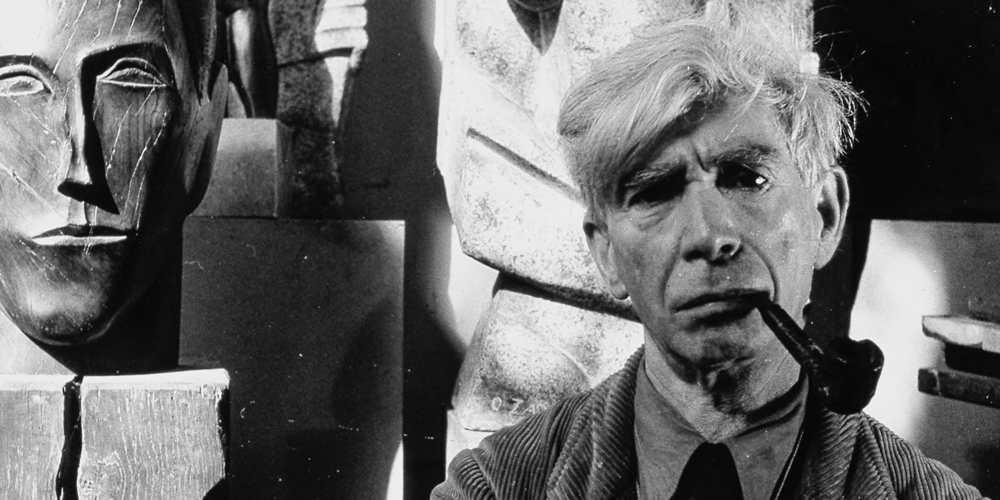 Ossip Zadkine in his studio with sculptures, photo Wikimedia
Ossip Zadkine in his studio with sculptures, photo Wikimedia
Ossip Zadkine, a leading figure of modernist sculpture in the 20th century, was born in Belarus in 1890 and spent his childhood deep in the pine forests of the countryside. Young Ossip always had a interest in art, and started sculpting with clay when he was twelve years old. As a teenager, in 1905, his parents sent him to England to study art and woodcarving. Five years later, at the age of twenty, he moved to Paris to become a sculptor. His first home was a hotel in the Latin Quarter.
In Paris enrolled at the École des Beaux Arts in 1920, and in just a few years his first works were sold at the Salon d'Automne.
During World War I, Zadkine volunteered and was assigned to drive in the ambulance corps for the Russian division in the Champagne country. It was turning point in his life after he suffered from a gas attack and was sent back to Paris to recover.
During World War II, Zadkine exiled himself to New York via Lisbon on the last ship to leave that city in 1941. In New York City he lived in Greenwich Village and exhibited with other exiles — Fernand Leger, Marc Chagall, and Jacques Lipschitz.
In 1945 he returned to Paris greatly changed, He would go on to create his most famous works including La Forêt Humaine (The Human Forest) and La Ville Détruite (The Destroyed City), a powerful monument commemorating the destruction of Rotterdam during World War II. These iconic sculptures explore themes of human resilience, fragility, and connection, earning him recognition as a master of his craft.
Zadkine, a life-long traveler was also influenced by Cubism, African art, and classical traditions, and developed a unique style that combined abstraction with emotional depth.
Throughout his life, Zadkine remained deeply engaged with the art world, teaching at the Académie de la Grande Chaumière and exhibiting internationally. In 1948 he opened an art school on Rue Notre-Dame-des-Champs near his home and named it the Ossip Zadkine Studio of Modern Sculpture and Drawing. The school was approved by the US government's Department of Veterans, giving American veterans a chance to enroll as students (classes were taught in English!).
By the 1960s when he was one of the most famous names in sculpture, he wrote his memoir Le Maillet Et Le Ciseau, Souvenirs De Ma Vie (The Mallet and the Chisel, Memories of my Life).
Zadkine died peacefully at his home in 1967 and is buried in Montparnasse Cemetery. Today, his legacy lives on in the Zadkine Museum Paris.
![]()
|
Escape to the Land of Bubbly on a small-group day tour from Paris. Taste at top Champagne houses, meet boutique producers, enjoy a leisurely lunch, and toast to a perfectly sparkling day. |
|
Escape to the Land of Bubbly on a small-group day tour from Paris. Taste at top Champagne houses, meet boutique producers, enjoy a leisurely lunch, and toast to a perfectly sparkling day. |
Reflection
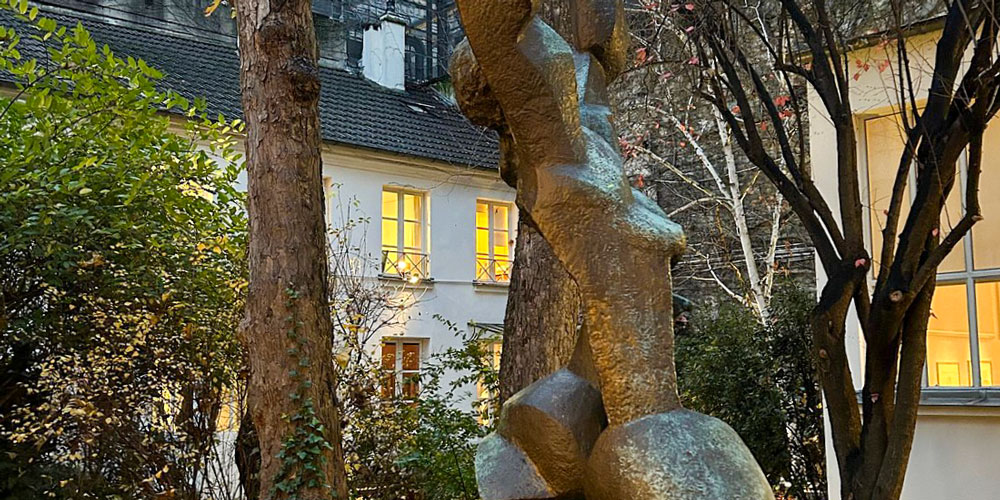
The Zadkine Museum Paris is a rare and intimate gem in the heart of the city, providing a glimpse into the life and work of one of modern art's most captivating sculptors. With its serene garden, preserved studio, and captivating sculptures, Musée Zadkine Paris invites you to reflect on the artistry and vision of the artist. You may be a lover of sculpture, a fan of Paris's rich artistic history, or simply someone looking for a peaceful retreat — whoever you are, the Zadkine Museum offers an enriching experience.
How to Visit the Zadkine Museum Paris
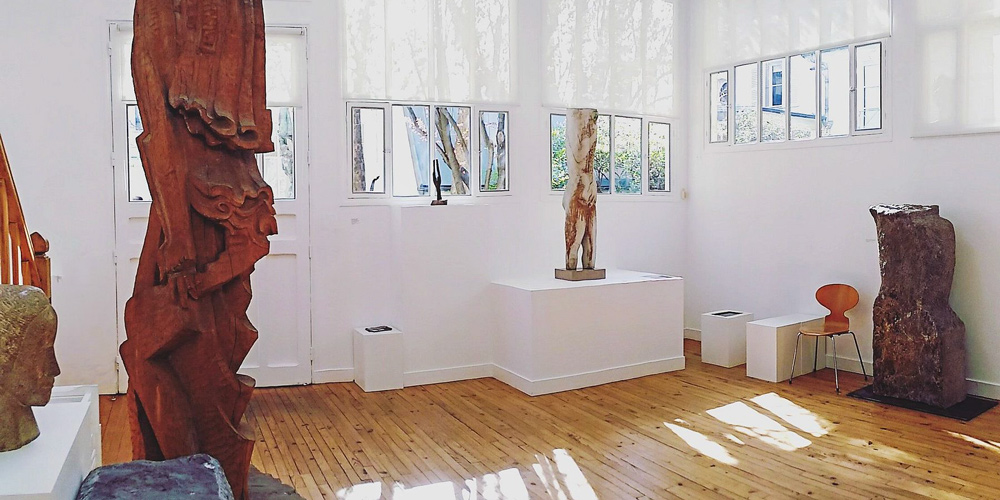
As a city of Paris museum, entry to the permanent collection is free. although there may be a fee for temporary exhibitions.Check the museum's website for special events or exhibition schedules.
Plan to spend at least an hour exploring the museum and its garden. The museum's tranquil atmosphere makes it an excellent place to relax after visiting the nearby Jardin du Luxembourg. The Zadkine museum is open from Tuesday to Sunday, with closures on Mondays and public holidays.
Zadkine Museum Paris
- 100 bis Rue d'Assas
- 6th Arrondissement
- Metro Vavin
- Website…
Paris Planning Guides
 Book an Airport Transfer
Book an Airport Transfer |
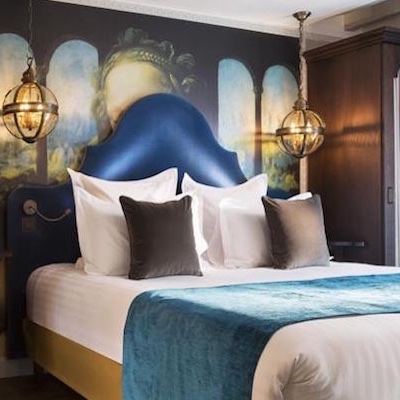 Left Bank Hotels
Left Bank Hotels |
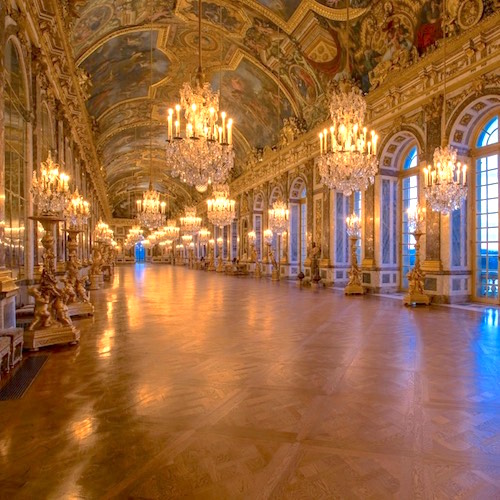 Visiting Versailles
Visiting Versailles |
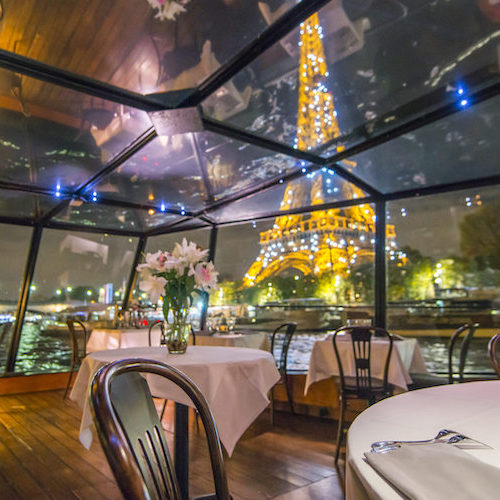 Glorious Dinner Cruises
Glorious Dinner Cruises |
